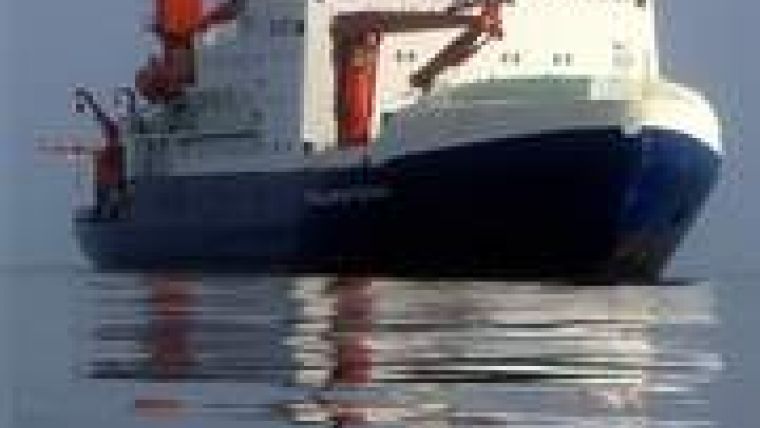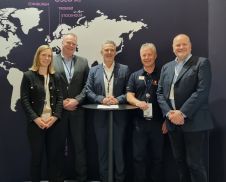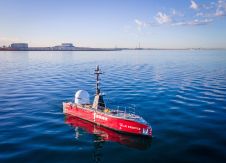Young Scientists Take Vital Signs of the Atlantic Ocean
The German research vessel Polarstern arrived in Cape Town on 2 December 2015 after a five-week voyage. During this training cruise from Bremerhaven to South Africa 32 international young scientists learnt how to observe and measure the vital signs of the Atlantic Ocean.
The RV Polarstern left its homeport Bremerhaven (Germany) on 29 October 2015 on a quest to train 32 young scientists in oceanographic measurements and sampling at sea. During the research cruise, the students learned to take oceanographic measurements and to interpret the structure of the water masses. With nets, plankton organisms were caught and identified under the microscope and the students even produced a guide for identifying the main algal species. Satellite data was analysed and compared to measurements at sea.
Capacity Building
The young people came from 19 different countries in Europe, Africa, Asia and America. They all were sponsored by the Alfred Wegener Institute Helmholtz Centre for Polar and Marine Research (AWI), the Nippon Foundation, the Partnership for Observation of the Global Oceans (POGO) and the Strategic Marine Alliance for Research and Training (SMART) in a concerted effort to increase ocean going training and to build capacity for marine research.
The Atlantic Ocean with its definite biogeographical gradients in temperature and salinity as well as its zones of upwelling is an integral part of the planet’s climate system. Professor Karin Lochte, director of the Alfred Wegener Institute, finds that with the backdrop of climate change and an increasing El Niño signature it is imperative to know how our oceans function. Professor Karen Wiltshire, POGO Chair, adds that therefore the ships, the instrumentation and, most importantly, well-educated scientists all over the world are needed to secure the ocean’s future.
Ocean Database
While all scientists were looking forward to being on land again and to bringing home their new found expertise in handling large bodies of ocean data from endless instrument casts into the deep, they were also very sad to leave the RV Polarstern and the vast ocean realm.
According to AWI Director Karin Lochte, the young ocean scientists from all corners of the Earth gained new experiences and contributed with their measurements to the ocean database required for Global Ocean Observation and advancement of climate modelling needed to secure our planet’s future.

Value staying current with hydrography?
Stay on the map with our expertly curated newsletters.
We provide educational insights, industry updates, and inspiring stories from the world of hydrography to help you learn, grow, and navigate your field with confidence. Don't miss out - subscribe today and ensure you're always informed, educated, and inspired by the latest in hydrographic technology and research.
Choose your newsletter(s)
























